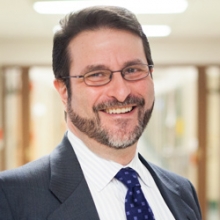CEE Seminar: Solute-particle-biofilm Interactions - Ubiquitous Controls on Physical-biological Dynamics

Professor
Civil & Environmental Engineering
Northwestern University
Abstract: Microbial biofilms grow ubiquitously on wet surfaces in natural, engineered and biomedical systems. Biofilms both drive critical biogeochemical cycles and present challenges for water systems performance and infectious disease. My group has explored interactions between biofilms and surrounding environmental conditions in many contexts: eradication of biofilm-based infections, biofilm control in municipal and building water systems and waterborne disease transmission in rivers. Fundamentally, biofilms are a composite biological material, with cells suspended in a self-synthesized polymeric matrix. Biomineralization and particle deposition both lead to accumulation of inorganic components in the biofilm matrix, which increases the structural and morphological complexity of the biofilm. We have found that the susceptibility of biofilms to biocides and antimicrobials depends on internal transport processes mediated by the structure of these inorganic deposits. Specifically, hindered transport through the biofilm matrix reduces biofilm killing, and mineral deposits that encapsulate the biofilm further hinder transport, leading to protection and stabilization of the biofilm. At larger scales, biofilms on streambeds and hyporheic sediments capture suspended cells and particles, contributing to long-term particle retention and colonization of river sediments by bacteria. I will present results on multiscale experimentation and imaging of solute-particle-biofilm interactions in these systems, along with conceptual and quantitative models for linking these processes across scales.
Bio: Aaron Packman is a professor of civil and environmental engineering and the director of the Center for Water Research at Northwestern University. His research focuses on water, particles and microbiota with particular emphasis on the basic processes that control interfacial dynamics in water systems and the coupling of physical processes with biological and biogeochemical processes. Packman’s work is highly collaborative and encompasses fluid mechanics, particle transport, surface chemistry and microbiology. Important applications include benthic microbial ecology, nutrient and carbon cycling, contaminant transport and water quality, ecosystem degradation and restoration, waterborne disease transmission and control of biofilms in human infection and engineered water systems. Packman has received several awards for his work, including Career awards from the U.S. National Science Foundation and National Institutes of Health, the Huber Research Prize from the American Society of Civil Engineers and a Fulbright Distinguished Chair award for research and teaching at Politecnico di Torino.
Share
Upcoming Events
-
EECS Seminar: Less Compute, More Intelligence – Efficient and Autonomous Generative AI and Agents
-
MAE 298: Microscopic Robots that Sense, Act and Compute
-
CBE 298 Seminar: Interface Modification for Electrocatalysis
-
CEE Ph.D. Defense Announcement: Machine Learning and Remote Sensing for Environmental Modeling - From Large-Scale Streamflow Forecasting to Malaria Risk Mapping
-
CBE Special Seminar: Operando Electrochemical Methods at Dynamic Energy Materials Interfaces
